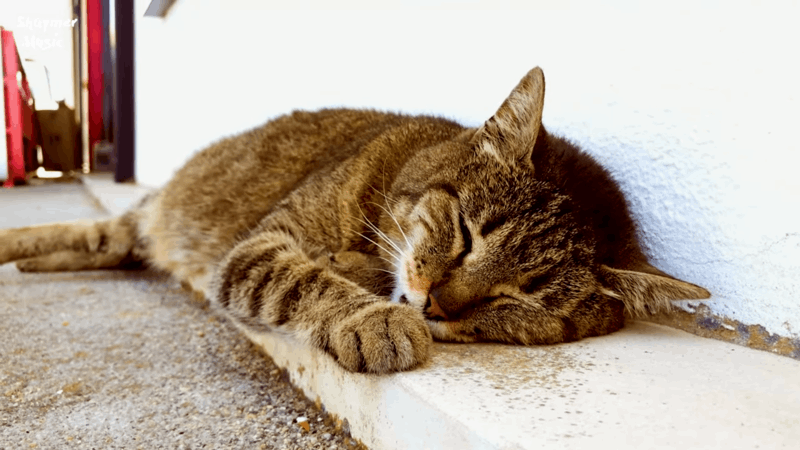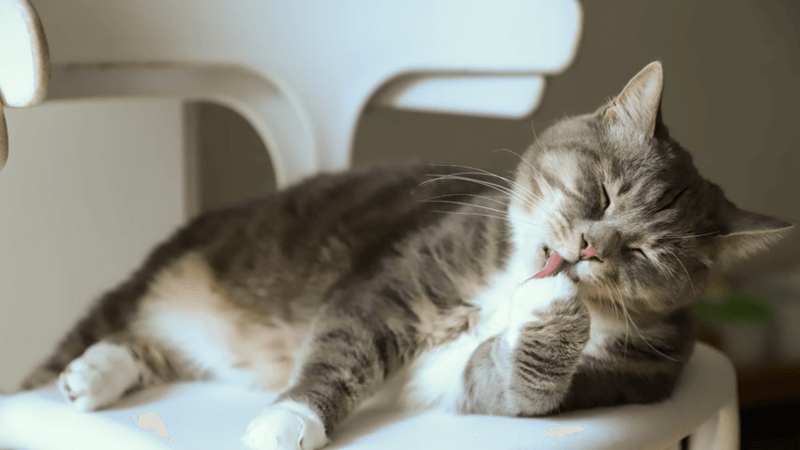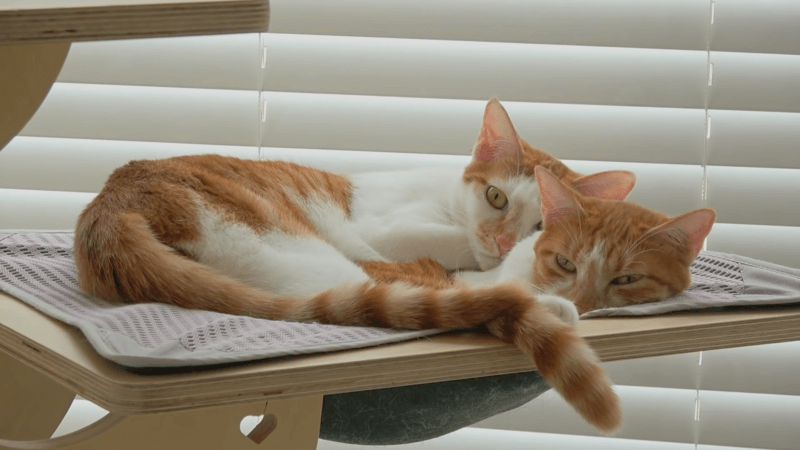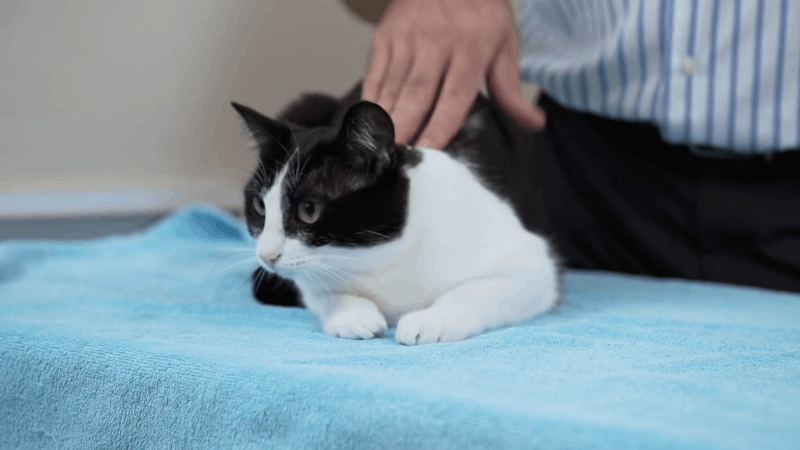No products in the cart.
Can cats get kennel cough? Surprisingly, the answer is yes. This infectious respiratory disease is commonly linked to dogs, however, it can also infect cats, particularly in settings like boarding homes or shelters.
The causes of kennel cough in cats, warning signs to look out for, and effective pet protection measures are all covered in this blog. Understanding these risks can help you keep your feline friends safe and healthy.
What is Kennel Cough in Cats?

Kennel cough in cats (or known as Bordetella infection), is a highly contagious respiratory illness caused by the bacterium Bordetella bronchiseptica. Cats living in boarding facilities, multi-cat homes, and shelters that allow them to come into close contact with other animals are the main populations affected. Although less common in cats than in dogs, it can still lead to significant respiratory symptoms.
Cat Kennel Cough Symptoms
Cats affected by kennel cough exhibit a variety of respiratory symptoms that can range from mild to severe. Key symptoms to watch for include:
- Persistent coughing: A dry, hacking cough that can sound like a cat trying to clear its throat.
- Sneezing: Regular sneezing that could have nasal discharge attached.
- Nasal discharge: Clear or cloudy discharge from the nose, which can be more pronounced in severe cases.
- Fever: Elevated body temperature, often mild but can be more severe in some cases.
- Lethargy: Reduced energy levels, reluctance to move, and general tiredness.
- Loss of appetite: If the condition persists, it can cause decreased interest in food and weight loss.
To manage the condition and prevent complications, recognizing these symptoms early and seeking veterinary care are so important.
What does Kennel Cough Sound Like in Cats?
Kennel cough in cats often manifests as a persistent, dry, and hacking cough. The cough may be harsh and frequent, and it often worsens with physical activity, excitement, or during the night. Unlike the typical gentle and soft meows of a cat, this cough is more forceful and can be quite concerning to hear.
What Causes Kennel Cough in Cats?
Kennel cough in cats is caused by a combination of bacterial and viral agents, along with environmental factors. The primary causes include:
- Bordetella bronchiseptica: Primary bacterium causing upper respiratory inflammation.
- Feline Herpesvirus (FHV-1): Viral infection that exacerbates respiratory symptoms.
- Feline Calicivirus (FCV): Viral agent causing respiratory illness.
- Environmental stressors: Overcrowding, poor ventilation, and unsanitary conditions.
- Close contact with infected animals: Exposure in high-risk environments like shelters.
- Weakened immune system: Cats with FeLV, FIV, or other immune-compromising conditions.
Can Cats Get Kennel Cough?
Cats can get kennel cough through several transmission pathways, often involving close contact with infected animals or exposure to contaminated environments. Here are the primary ways cats get kennel cough:
- Direct contact: Interaction with infected cats or dogs.
- Airborne transmission: Inhaling respiratory droplets from coughing or sneezing.
- Contaminated surfaces: Touching contaminated surfaces, bedding, or toys.
- High-risk environments: Exposure in shelters, boarding facilities, or multi-cat households.
- Human carriers: Transmission via humans carrying the bacteria or viruses on hands or clothing.
To take preventive measures that can protect pets from kennel cough, understanding these transmission pathways is important.
How Serious is Kennel Cough in Cats?

Kennel cough in cats can range from mild to severe. Coughing, sneezing, and nasal discharge are the symptoms of the mild illness, which resolve with supportive care and veterinary treatment. In kittens, older cats, or those with compromised immune systems, it can lead to serious complications such as pneumonia or chronic respiratory issues.
How Long Does Kennel Cough Last in Cats?
Kennel cough in cats typically lasts from one to three weeks. Mild cases may resolve on their own with supportive care and rest. More severe cases or those with secondary infections may take longer and require antibiotics or other treatments from a veterinarian. Recovery can be accelerated by symptom monitoring and proper care.
Differences Between Kennel Cough in Cats and Dogs
Kennel cough affects both dogs and cats, however, it presents and impacts each species differently and here are some features that we should be aware of:
| spect | Cats | Dogs |
| Commonness | Less common in cats | More common in dogs |
| Primary Pathogen | Bordetella bronchiseptica, Feline Herpesvirus, Feline Calicivirus | Bordetella bronchiseptica, Canine Parainfluenza Virus |
| Symptoms | Coughing, sneezing, nasal discharge, fever, lethargy | Coughing, retching, nasal discharge, fever, lethargy |
| Transmission | Direct contact, airborne droplets, contaminated surfaces | Direct contact, airborne droplets, contaminated surfaces |
| Severity | Typically mild, can become severe in kittens, seniors, or immunocompromised cats | Usually mild but can be severe, especially in puppies or older dogs |
| Treatment | Supportive care, antibiotics if bacterial infection is present | Supportive care, antibiotics if bacterial infection is present |
| Prevention | Vaccination, hygiene, avoiding high-risk environments | Vaccination, hygiene, avoiding high-risk environments |
Pet owners should recognize these important distinctions between dogs and cats to prevent kennel cough and to keep their pets safe and healthy.
Kennel Cough in Cats Treatment

Ensuring rest, hydration, and good nutrition are the supportive care provided in treating kennel cough in cats. To treat bacterial infections and anti-inflammatory medications or cough suppressants to alleviate symptoms, antibiotics will be used in some cases.
To manage the condition effectively, isolating the infected cat from other pets and monitoring symptoms closely are also essential.
How to Treat Kennel Cough in Cats at Home?
Treating kennel cough in cats at home involves providing supportive care and creating a comfortable environment to aid recovery. These steps should be followed:
- Ensure plenty of rest: Ensure the space is quiet and comfortable for the cat to rest and recover without stress.
- Hydration: To be hydrated, your cat must always have access to fresh water.
- Good nutrition: Offer high-quality, nutritious food to support the immune system.
- Use a humidifier: The air should be added by some moisture with a humidifier to make breathing easier.
- Avoid irritants: Keep your cat away from smoke, strong perfumes, and other respiratory irritants.
- Isolate from other pets: Keep the infected cat separate from other animals to prevent the spread of the infection.
- Monitor symptoms: Keep a close eye on cats’ symptoms and seek veterinary advice if their health is not improved.
Your cat can recover from kennel cough more comfortably and effectively by following these home care steps.
Medications for Kennel Cough
To treat kennel cough in cats, certain medication can be prescribed by a veterinarian beside the home care. These medications include:
- Antibiotics:
- Doxycycline: Often prescribed for bacterial infections associated with kennel cough.
- Amoxicillin: Another common antibiotic used to treat secondary bacterial infections.
- Cough Suppressants:
- Dextromethorphan: Helps to reduce the frequency and severity of coughing.
- Anti-inflammatory Medications:
- Corticosteroids: Used to lessen symptoms and inflammation.
- Bronchodilators:
- Albuterol: May be prescribed to help open up the airways and improve breathing (used under veterinary guidance).
To ensure these are safe and effective medications of kennel cough in cats, getting advice from a veterinarian is recommended.
Conclusion
Can cats get kennel cough? Yes, they can. Your feline friend’s health can be maintained by understanding the risks. Recognizing signs early, maintaining a clean environment, and scheduling regular veterinary check-ups are important actions to protect your cats from this contagious illness.
Hello, I am Hazel Bennett, an experienced copywriter specializing in the fascinating topic of CBD for dogs. With a passion for pet wellness and extensive knowledge of CBD’s potential benefits, I am here to provide you with informative and engaging content.



